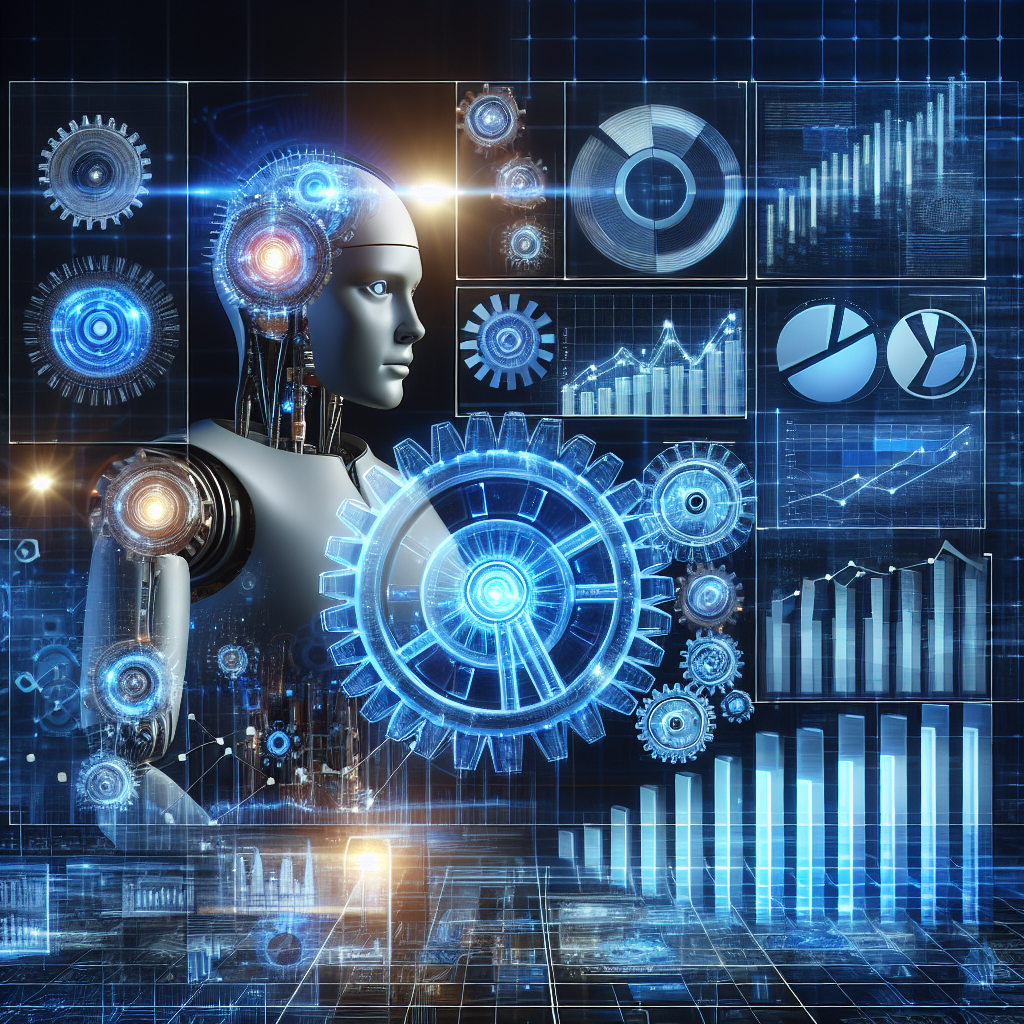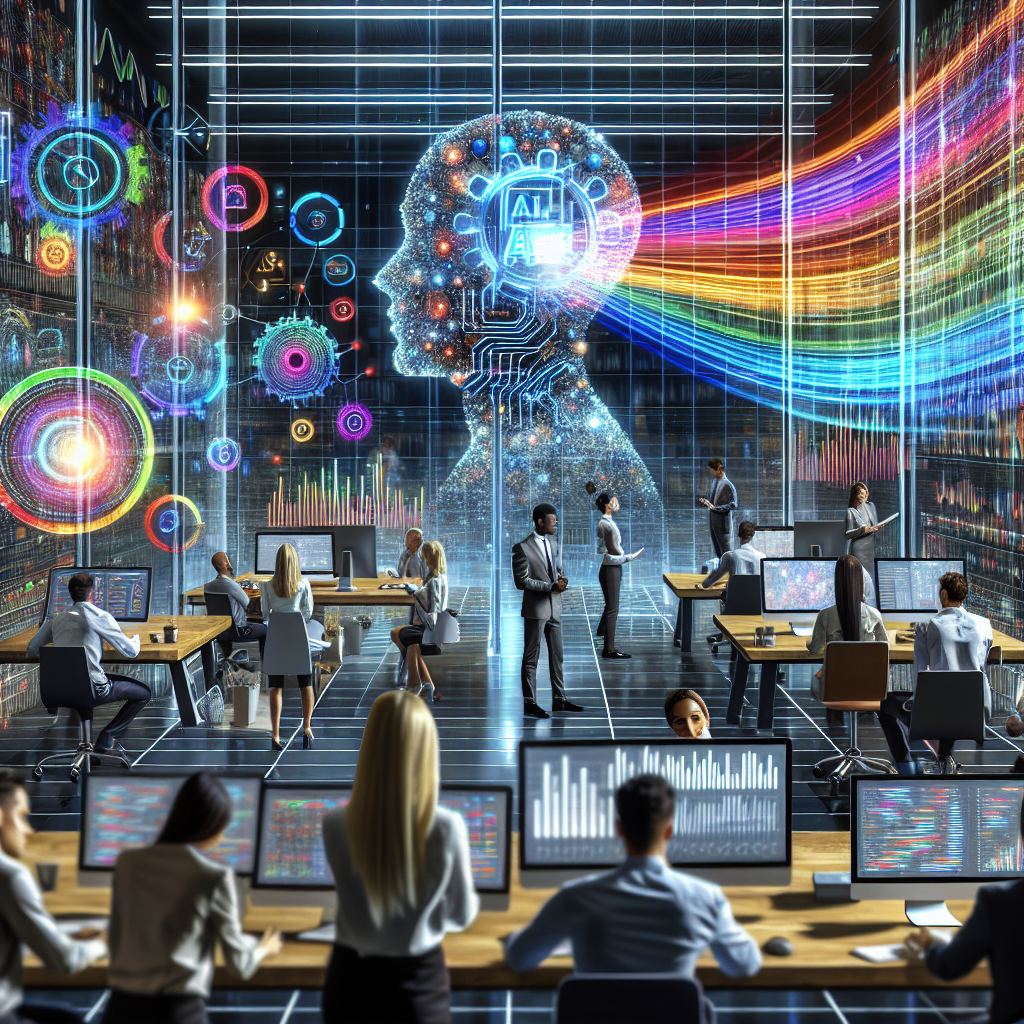-
Table of Contents
- The Role of AI in Marketing Automation
- Understanding AI in Marketing Automation
- Key Functions of AI in Marketing Automation
- Enhancing Customer Insights and Personalization
- Case Study: AI-driven Personalization for E-commerce
- Streamlining Marketing Operations with AI
- Improving Email Marketing with AI
- AI-Powered Chatbots and Customer Service
- Example: AI Chatbots in Banking
- Challenges and Ethical Considerations
- Addressing Data Privacy in AI
- Future Trends in AI and Marketing Automation
- Emerging Technologies and Their Impact
- Conclusion: Key Takeaways on the Role of AI in Marketing Automation
The Role of AI in Marketing Automation

The integration of Artificial Intelligence (AI) into marketing strategies has revolutionized the way businesses interact with customers, streamline operations, and enhance decision-making processes. As we delve deeper into the 21st century, the role of AI in marketing automation becomes increasingly pivotal, offering sophisticated tools and insights that drive efficiency and effectiveness in marketing campaigns. This article explores the multifaceted contributions of AI to marketing automation, highlighting its impact through examples, case studies, and statistical evidence.
Understanding AI in Marketing Automation
At its core, AI in marketing automation involves the use of intelligent algorithms and machine learning techniques to automate complex marketing tasks. This technology not only performs repetitive tasks more efficiently than humans but also provides deeper insights into customer behavior and preferences. The role of AI in marketing automation spans various functions, from predictive analytics to personalized customer experiences.
Key Functions of AI in Marketing Automation
- Predictive Analytics
- Customer Segmentation
- Personalization
- Chatbots and Virtual Assistants
- Programmatic Advertising
Enhancing Customer Insights and Personalization
The role of AI in marketing automation is profoundly evident in how it enhances understanding of customer data. AI algorithms analyze vast amounts of data to identify patterns and predict future behaviors. This capability allows marketers to craft more targeted and effective strategies.
Case Study: AI-driven Personalization for E-commerce
A prominent example of AI in marketing automation is its use in e-commerce personalization. Online retailers like Amazon utilize AI to analyze browsing history, purchase behavior, and other user data to offer personalized product recommendations. This not only improves customer experience but also increases conversion rates and customer loyalty.
Streamlining Marketing Operations with AI
AI’s role in marketing automation extends to streamlining operations, reducing costs, and enhancing productivity. Automated workflows enabled by AI help businesses manage time-consuming tasks such as email marketing, social media posts, and content management with unprecedented efficiency.
Improving Email Marketing with AI
AI tools can optimize email marketing campaigns by determining the best times to send emails, segmenting audiences based on behavior, and crafting personalized content that resonates with each recipient. This tailored approach significantly boosts open rates and engagement.
AI-Powered Chatbots and Customer Service
One of the most visible applications of AI in marketing automation is the use of chatbots. AI-powered chatbots provide instant customer service, handling inquiries and resolving issues around the clock without human intervention. This not only enhances customer satisfaction but also allows businesses to scale their customer service operations efficiently.
Example: AI Chatbots in Banking
Banks like Bank of America use their AI chatbot, Erica, to assist customers with transactions, provide financial advice, and manage accounts, showcasing the role of AI in marketing automation by enhancing customer interaction and service.
Challenges and Ethical Considerations
Despite the benefits, the integration of AI in marketing automation is not without challenges. Issues such as data privacy, security, and ethical concerns about AI decision-making need careful consideration. Businesses must address these challenges transparently to build trust and ensure compliance with regulations.
Addressing Data Privacy in AI
With the increasing use of AI in marketing automation, safeguarding customer data privacy has become paramount. Companies need to implement robust security measures and comply with data protection laws to protect sensitive customer information from breaches and misuse.
Future Trends in AI and Marketing Automation
The future of AI in marketing automation looks promising, with advancements in technology paving the way for more innovative applications. Trends such as voice search optimization, AI-driven content creation, and augmented reality in marketing are set to redefine the ways businesses engage with customers.
Emerging Technologies and Their Impact
Technologies like machine learning, natural language processing, and computer vision continue to evolve, enhancing the role of AI in marketing automation. These advancements promise to deliver more personalized, seamless, and engaging marketing experiences.
Conclusion: Key Takeaways on the Role of AI in Marketing Automation
The role of AI in marketing automation is transformative, offering significant advantages in terms of operational efficiency, customer insights, personalization, and customer service. As businesses continue to adopt AI-driven solutions, they must also navigate the associated challenges responsibly. Looking ahead, the ongoing evolution of AI technologies holds exciting potential for further innovations in marketing automation, promising to enhance the ways businesses connect with and serve their customers.
In conclusion, the role of AI in marketing automation is crucial and ever-expanding, providing businesses with powerful tools to enhance their marketing strategies and achieve superior results.


